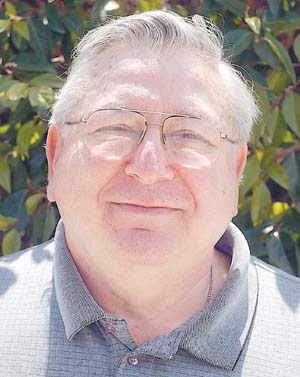Dictionary.com defines a dirty word is any word, name, or
concept considered reprehensible or unmentionable.
Dictionary.com defines a dirty word is any word, name, or concept considered reprehensible or unmentionable.
Dirty words have been around as long as language. They are universally used for emphasis and many times for comedy. A perfect example would be the late George Carlin’s famous routine, “Seven Words You Can Never Say on Television.” It’s certainly an ear-burning stream of vulgarity, but you may not know that it was also the subject of a case in the U.S. Supreme Court, which ruled it was indecent but not obscene.
Dirty words are also used to express repulsive ideas. If Carlin were alive today, he’d have to add a dirty word to his original list – profit. Profit is now America’s dirtiest word of all. Armies of misguided reformers are dedicated to wiping out profit because, according to them, profit is the root of all evil. They are the reincarnation of the prohibition crusaders.
What they do not understand is that profit is the tool of the consumer. It is the reward the consumer provides when they get what they want. Properly used, as it is most of the time, it has brought our society of more than 315 million people to a fantastic standard of living. However, some folks do not understand how to use this tool, so like the poor mechanic who tries to use a hammer to install a screw, they blame the tool for their own failings.
When profit is removed from the system, the consumer no longer has the critical tool they need to be in control. If someone provides a service but cannot make a profit, what is their incentive to do better? When the profit motive goes away so does competition and we’re all aware of how the consumer fares in a non-competitive environment; they are forced to take whatever they can get.
Almost everyone makes a profit, including workers. If you work for a living and make one penny more than the absolute minimum you need to survive, you are making a profit on your labor. Most of those who work for the, so-called, non-profits take pay and make a profit. They hardly ever object to their own profits, just the profits made by others (my profit good – your profit bad).
The national, state and local governments do not operate on profit, but almost all of their employees do. On a practical level, there are things such as national defense and law enforcement that only government can do, but who will claim that government is the model of efficiency, innovation, value added and customer service? It’s perfectly understandable; other people’s money is never watched as carefully as one’s own.
If, as the argument goes, we only remove the profit from the system we will have all that money to spend on other things. Since almost everyone being paid for their work makes a profit, if we take the profit from all enterprise the consumer is powerless and what if that still does not do the trick? Then what’s to prevent us from then taking all the profit from the workers? We can then just force them to work for what we decide they need – not what they believe they are worth.
Logically, that’s where this thinking leads; in the end, the government owns and controls everything. This is not a new idea; it was originally expressed as, “From each according to his ability, to each according to his need” by Karl Marx in 1875 and the history books are crammed with the failures of one profitless worker’s paradise after another.
Eliminating the profit motive didn’t work then and it won’t work now. It only eliminates competition, opportunity and freedom of choice.
Marty Richman is a Hollister resident. His column runs Tuesdays. Reach him at cw*****@***oo.com.









